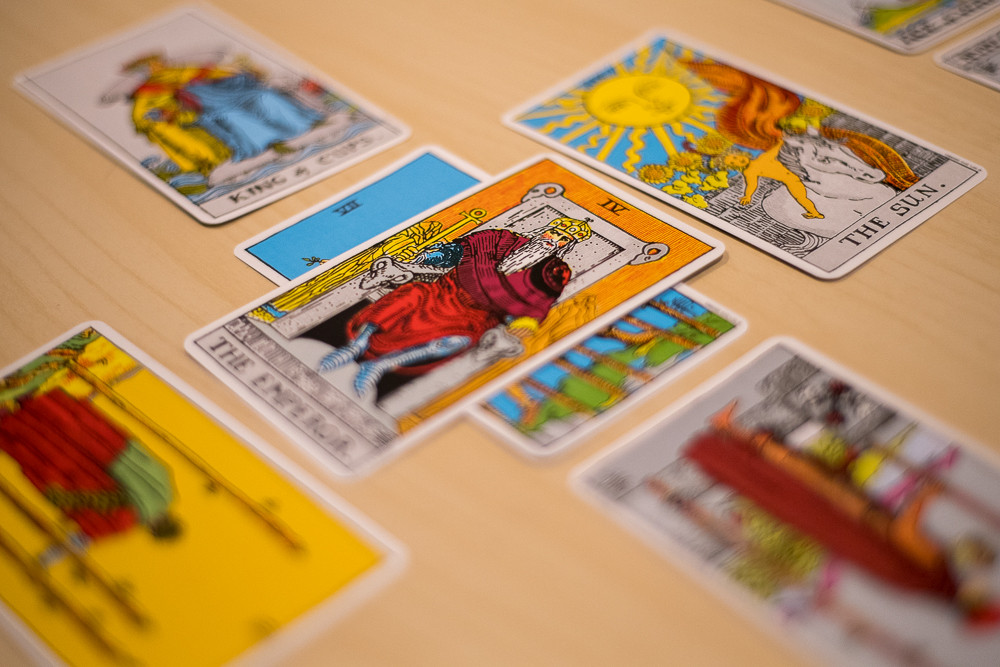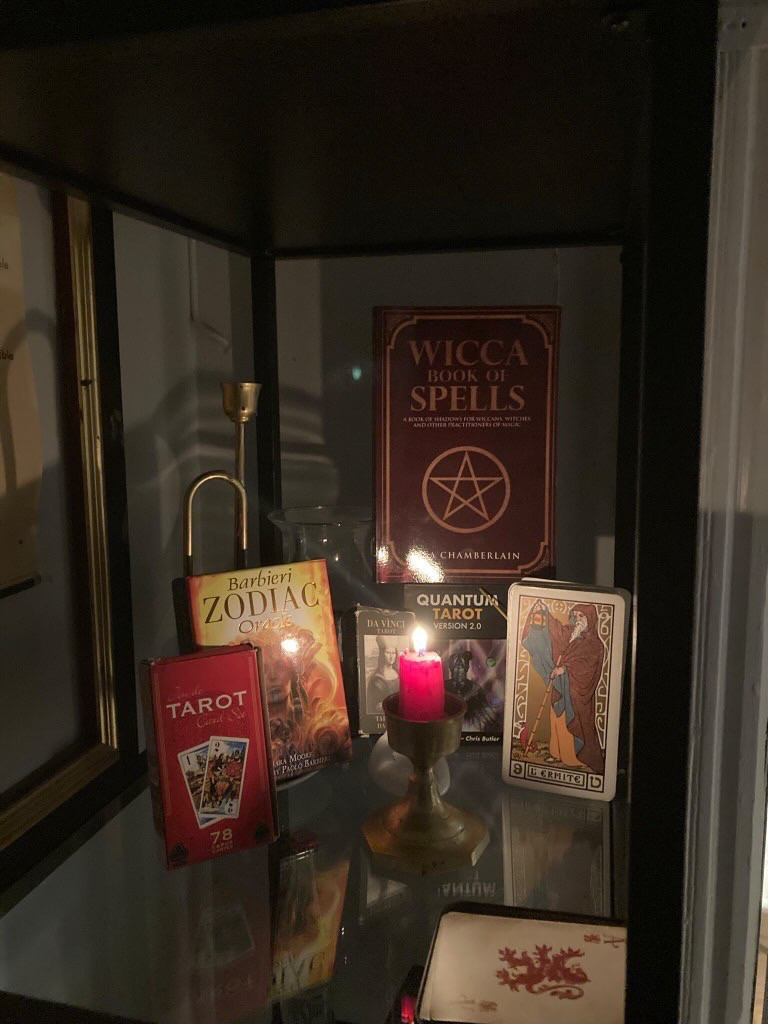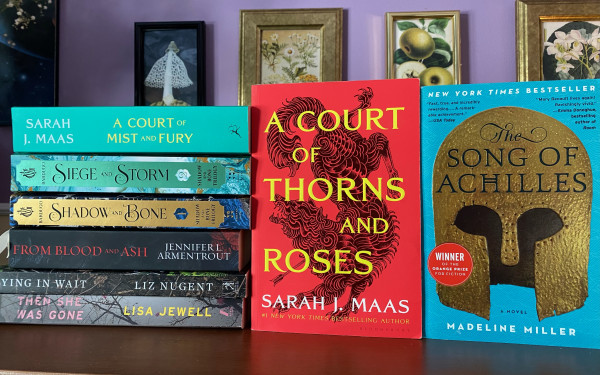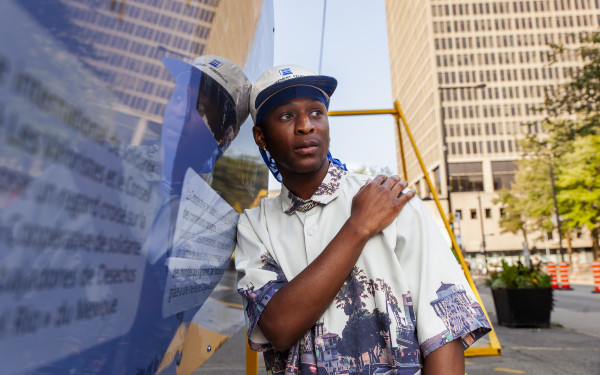Craving spirituality: Holistic practices that date back thousands of years are making a comeback
Younger generations are getting more and more involved in spirituality. Photo Gabrielle Laperrière-Leblanc
Crystals, astrology, tarot, and more spiritual practices are making their way into young people’s lives
According to spiritual advisors and new age enthusiasts, more and more millennials and Generation Zs are ditching traditional religion for spiritual alternatives in the middle of a worldwide pandemic.
TikTok and other social media platforms may be partly liable for the spike in popularity of these spiritual practices.
Heaven-Leigh Angel is a 23-year-old queer Black and Indigenous crystal jewelry maker who has noticed an increase in demand for crystals. “I think the recent spike really has to do with TikTok,” she said. “Things are just not the way they normally are and people are experiencing a lot of mental health issues.” Someone scrolling down their TikTok feed may come across a post that says crystals or positive mantras can elevate their energies, and that makes them feel better, explained Angel.
Several spiritual practices such as tarot, manifestation, meditation, spell work, and more are part of very old traditions that are being introduced to an international capitalist market. But being of Caribbean and Wayuu descent, Angel grew up surrounded by spirituality as it is part of her ancestral beliefs.
“The problem is everything that relates to spirituality is now being capitalized. We see crystal mines being over-mined [and] because of the recent demand, people are buying their spiritual stuff like incense and herbs from non-sustainable companies,” she said.

According to a 2019 article by The Guardian, the demand for crystals is soaring, but many are mined in deadly conditions in some of the world's poorest countries.
With the flux of people needing healing and spirituality more than ever, some small business owners like Angel may have a solution to practice spirituality responsibly.
“Capitalism is defeating the purpose of spirituality,” she said. “I feel like if we do hold ourselves accountable to the way we view things, buy from smaller sustainable businesses, and not over consume it ourselves, that could be practicing spirituality in a responsible way.”
“No matter what I, or other creators of colour will do, the creators that get to one million plus views on spirituality TikTok are the white girls.” — Heaven-Leigh Angel
Besides the problematic ways in which these practices are being capitalized, there is also a large problem of appropriation when it comes to spiritual practices and methods. Spiritual practices that are directly derived from marginalized communities have been adopted by anyone who wishes to practice it.
“No matter what I, or other creators of colour will do, the creators that get to one million plus views on spirituality TikTok are the white girls,” said Angel.

With these practices becoming more and more capitalized and white washed, 21-year-old sorcerer, Uriel Villaverde, said that it bothers him a lot to see people making profit off of spiritual practices like tarot reading.
Villaverde grew up Catholic in Mexico City and moved to Canada a couple of years ago, where he can live in his spiritual truth and his queerness.
“My mother is from the city of Santa Lucia in the state of Hidalgo in the mountains, that's where some of my magic and spirituality comes from,” he said.
Villaverde is a professional tarot reader, palm reader, and considers himself a sorcerer. “The word sorcerer means to learn and even though I was born with a gift and intuition, I am never done learning and expanding in my spiritual ways,” he said.
While Villaverde thinks it's great that people are looking inwards and wanting to grow, he believes tarot readers shouldn't even be charging for readings.“A tarot session shouldn't be more than $5. When I see people charging more it tells me that something is wrong. The point of people like me, who truly have a gift, is to help people, period,” he said.
When it comes to the question of spirituality over traditional religion, Villaverde said spirituality goes deeply into certain important concepts that organized religion barely touches.
24-year-old Jada Marcelus was brought up as a Seventh Day Adventist in a Haitian community in Montreal and Ottawa. Like a lot of people recently, she is finding her way into her own version of spirituality that now mixes Christian elements and ancestral beliefs.
“There are certain religious principles that are genuinely good and [that] I still have with me, but also, I am using spirituality to help me heal some of the trauma religion brought to my young, hard-headed queer self,” she said. “I was gifted crystals and I put intentions into them. I meditate and try to listen to what my body and my mind are telling me. My overall intuition got stronger and I do believe ancestors are sending me signs to guide me.”
“There are certain religious principles that are genuinely good and [that] I still have with me, but also, I am using spirituality to help me heal some of the trauma religion brought to my young, hard-headed queer self.” — Jada Marcelus
When it comes to cultural appropriation of spirituality, Marcelus believes that as long as you are not claiming anything as your own, you should be able to practice spirituality.
“People have to keep in mind that certain practices are reserved for People of Colour and certain communities,” she said. “Even me, I stay on the Caribbean or Haitian side of spirituality and wouldn't do something that is native to a certain culture’s background.”
There is no doubt that today's unpredictable climate mixed with the popularity of apps like TikTok has brought a lot of people to do introspective work through spiritual practices. Like with anything that gets placed into a mainstream sphere, asking questions on how to practice spirituality in a responsible way; whether it be for sustainability reasons or cultural respect, is a must.




